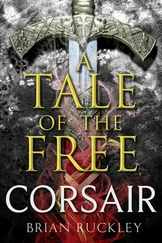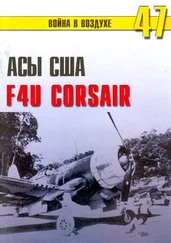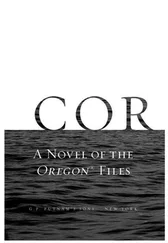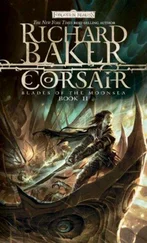He bowed and moved on, feeling that he had extracted the best possible outcome from the encounter.

ON HIS WAY back home after the awkward meeting with the khaznadji, Turgut Reis knew what he would do to restore his normal good humour. His house was one of the privileges that came with his rank as Captain of Galleys. A four-storey mansion, it was positioned on almost the highest point of the city, with a magnificent view out over the harbour and the sea beyond. To take full advantage of the location, Turgut had caused a garden to be created on the flat roof. His servants had carried up hundreds of baskets of earth and laid out flowerbeds. Sweet-smelling shrubs had been selected and planted, and a dozen trees rooted in large tubs to shade the spot where Turgut liked to sit cross-legged, gazing over the view and listening to the distant sounds of the city spread out below him. Now, reaching the roof garden, he called for his favourite carpet to be brought out. It was an Usak in the old-fashioned Anatolian style and made with the Turkish knot. In Turgut’s opinion the more recent and popular Seraglio designs with their profusion of tulips and hyacinths and roses were much too showy, though he had to admit that the Persian knotting did give them a softer, more velvety surface. But only the Usak carpet with its pattern of repeated stars was the appropriate setting for his most prized possession – the Kitab-i Bahriye.
He waited patiently while his steward brought up the beautifully carved bookstand, and then the volume itself. Turgut looked down at the cover of the book and allowed himself a few moments of anticipation before he opened it and relished the treasures within. Of course, there were other versions of the Book of Sea Lore as the infidels called it. Indeed the Padishah himself owned the most lavishly illustrated copy in existence, a volume prepared specially for the Sultan of Sultans. But the copy lying before Turgut was unique. It was the original. Prepared 150 years ago by Turgut’s forebear, the peerless Piri Reis, the book of maps and charts and its accompanying collection of sailing notes had been passed down in his family for six generations. It was the wellspring from which all other versions had been drawn.
Turgut leaned forward and opened the book at random. He knew every page by memory, yet he never failed to be awed by the vision of the man who had created it. ‘God has not granted the possibility of displaying everyone of the afore-mentioned places such as harbours and waters around the shores of the Mediterranean, and the reefs and shoals in the water, in a single map,’ he read. ‘Therefore experts in this science have drawn up what they call a “chart” with a pair of compasses according to a scale of miles, and it is written directly on a parchment.’
Here was the genius of his ancestor, thought Turgut. The man who wrote those words was much more than the Sultan’s High Admiral and a great war leader. He also had the curiosity and penetration to study and learn, and the generosity to donate his knowledge to others.
Gently Turgut untied the silk ribbons of an accompanying folder. It contained a very special map also prepared by Piri, a map of much greater ambition for it summarised what the admiral had been able to find out about the great western ocean beyond the straits which divide Spain and Ifriqya. This map depicted lands far, far out towards the setting sun, places which neither the High Admiral nor the Captain of Galleys had ever visited, but only knew by repute. Piri Reis had spent years sifting and collating information in the writings and log books of infidels as well as Moors in order to assemble this map, the first of its kind in the Padishah’s Empire, copied and admired in many lands.
Turgut picked out a typical comment written in the admiral’s neat hand, beside a sketch of a weird-looking beast on the west coast of Ifriqya. ‘In this country it seems that there are white-haired monsters in this shape, and also six-horned oxen. The Portuguese infidels have written it in their maps.’ Turgut sat back and considered. That sentence had been penned a century and a half earlier, yet already the infidels had been showing signs of surpassing the Faithful in their knowledge of the seas and how to navigate them. How had that come to pass? When he looked up into the night sky and searched for the stars that guide mariners at sea, they bore the names that the Faithful had given them, because it was the Moors who had first learned how to use them to find their way at night. Some said the Faithful were obliged to do this because they travelled on the haj across the vast expanses of the desert, and they needed the stars to guide them on their pilgrimage to the sacred places. So Allah in his infinite wisdom had placed the stars in the sky for this purpose. But now it was the infidels who were travelling farthest, and using these same stars to steer by. They were at the forefront of knowledge. Infidels were designing and building the finest sea-going ships even in the dockyards of Algiers; infidel cartographers drew the best charts; and unbelievers had sailed all the way around the globe.
But Turgut Reis had a secret that he had never revealed to anyone: one day he would, in a splendid gesture, demonstrate that the Faithful still possessed the skills that Allah had bestowed on the followers of the Prophet and, at the same time, burnish his own family tradition. He, Turgut Reis, might never be able to circumnavigate the globe like an infidel, nor explore the farther fringes of the western ocean, but he had the means and the opportunity to expand the Book of Sea Lore that his ancestor had pioneered, and that was just as momentous. That is why, every time he went on the corso, he carried with him his notebooks and brushes, why he made notes of the harbours and anchorages, and drew sketches of the coastlines. The day would come, if Allah willed it, when he would organise all these notes and drawings, and produce a new edition of the Kitab-i Bahriye, updating it to show all the changes that had taken place in the Mediterranean since the days of the High Admiral. It would be his personal homage to the memory of his ancestor.
Belatedly he had come to realise the magnitude of the task ahead of him, and now he worried that its accomplishment was slipping from his grasp. Through God’s will he lacked sons who might share in the great design, and with each passing year he felt the burden of his ancestry resting more heavily on his shoulders. In short, he needed a capable assistant to make sense of all his notes, organise his many sketches, and draw fair copies of his maps and charts. Perhaps, Turgut thought to himself, the young man he had bought that day might be just the amanuensis he needed. That, too, might be the gift of Allah.
Turgut bowed his head and closed his eyes. His lips moved in a silent prayer, as he beseeched the Most Merciful, the All-Merciful, that he would be granted a life long enough to fulfil that ambition, and that his eyesight would not fail prematurely.
Suddenly Turgut felt chilly. While he had been daydreaming, the sun had sunk behind the mountains, and the evening was growing cold. He clapped his hands to summon a servant and picked up the Kitab. Cradling it like his own child, he descended the stairs from the roof top, entered his library and replaced the volume in its box of cedar wood. Behind him the servant carried the precious ocean map in its folder, and then stood waiting until his master had laid it safely beneath a coverlet of dark green velvet. As Turgut took one last glance around his library to make sure that everything was in its proper place, he wondered if there was any way that he could retrieve the black-haired boy from the clutches of the khaznadji before the drudgery of being a beylik slave ruined him.
Читать дальше









